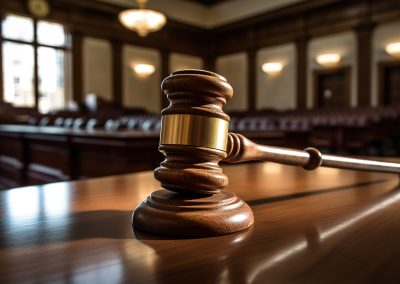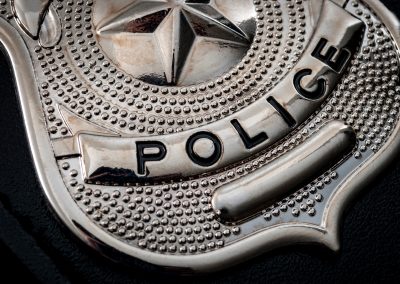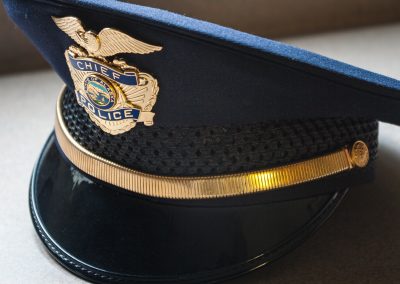When I was 13 years old I was a pall bearer for my best friend who was shot and killed by a Denver police officer. My friend Joey was unarmed and running from the officer when he was killed. It was ruled an accidental shooting. This tragic incident made me realize (at an early age) the impact police officers have on our lives. I saw how this death tore his family apart.
In spite of this tragedy I knew I wanted to become a cop. It’s difficult to explain why given the environment I was raised in. It’s cliché, but I wanted to make a difference. My friend’s killing wasn’t the only death among my friends I experienced as a child. But the fact he was killed by the police somehow made it different.
Becoming a Cop
I was raised by a single mother in the inner-city but I was fortunate in that she worked hard to shield me and my siblings from the realities of the streets and provided a supportive and loving home. I had family members who had been in prison and had no police officers in my family. Still, I looked up to police officers.
After I was hired as a police officer I started to realize that the majority of people who choose to enter law enforcement were some of the most intelligent, dedicated and caring people I knew. It isn’t easy to become a cop. The requirements weed out a lot of applicants. Physical and physiological hazards, video cameras, growing public oversight and increased departmental scrutiny—it’s a career full of risks. So why would anyone want to be a cop?
I’m always amazed at the backgrounds of many police officers. They could be doing just about anything else, but they want to serve our communities. I don’t need to dwell on the exceptions who violate the trust of society (the media reports on enough of that). Unfortunately the public usually only recognizes police officers when they are in trouble or when they die.
Who We Are
I’ve found that police officers are proud of their communities and the departments they work for, no matter how large or small. Good cops know every corner and back alley of their jurisdictions and are aware of the dangers and know how to be cautious. They know their communities and the people who live in them in a manner only cops can understand. They see the true impact of crime. I believe police officers genuinely care about helping people and keeping neighborhoods safe. Often times they make it a personal mission to help the crime victims they see on a continual basis.
Unfortunately this dedication can be negatively affected by an agency’s attempt to restrict an officer’s performance. Cops live in a world of rules, regulations, laws and ordinances. They have policy manuals outlining how to perform their duties within department specifications. This is fine. We need rules to provide guidelines.
But when these policies become so restrictive and punitive in nature—usually as a result of a few problem employees—that they demoralize and penalize the entire agency, there’s a problem. I’ve seen policies implemented without administrators considering their ramifications on preventing crime or the effect they might have on an officer’s ability to do their jobs.
Cops are resilient. They know how to follow new policies, even if they don’t agree with them. In this environment cops are cautious when placing themselves in a position where their actions might affect their employment. Cops have families, mortgages and careers to protect. A very dear friend of mine, retired Denver Police Division Chief Jerry Kennedy used to say: “Do something, something happens. Do nothing, nothing happens.” Unfortunately, the changing dynamics of today’s police work may impact how cops interact with the community. My hope is they won’t risk their safety or delay taking action when action is what is called for.
Recently FBI Director James Comey theorized that the recent increase in crime was heightened by scrutiny of the police. What he didn’t say is this increased scrutiny is coming from both within and outside of police agencies. While police administrators have no control over the public’s reaction, they must realize that enacting polices restricting an officer’s ability to do their jobs or creating an environment of fear through overzealous filing of disciplinary actions for minor procedural violations has a demoralizing and negative effect on officers. That equates to poor morale, and society suffers.
In Sum
I often reflect back on Joey’s death and of the responsibility we owe the citizens of our communities, how our actions can affect how they live their lives. It’s not easy being a cop so agencies should have an open and supportive environment encouraging officers to interact with the public in a positive manner , while providing the protection our neighborhoods need.
Chiefs and police administrations come and go. But the men and women who make the traffic stops, handle calls for service, interact with citizens, and place themselves at risk on a daily basis are the real police department the public sees. So if we want to truly reduce crime and make our communities safe without unjustly victimizing officers tasked with doing it, we need to worry less about public opinion and more about just taking care of the cops who put their lives on the line every time they wear the badge. Opinions change constantly, but good people who are treated well will stick around.










0 Comments